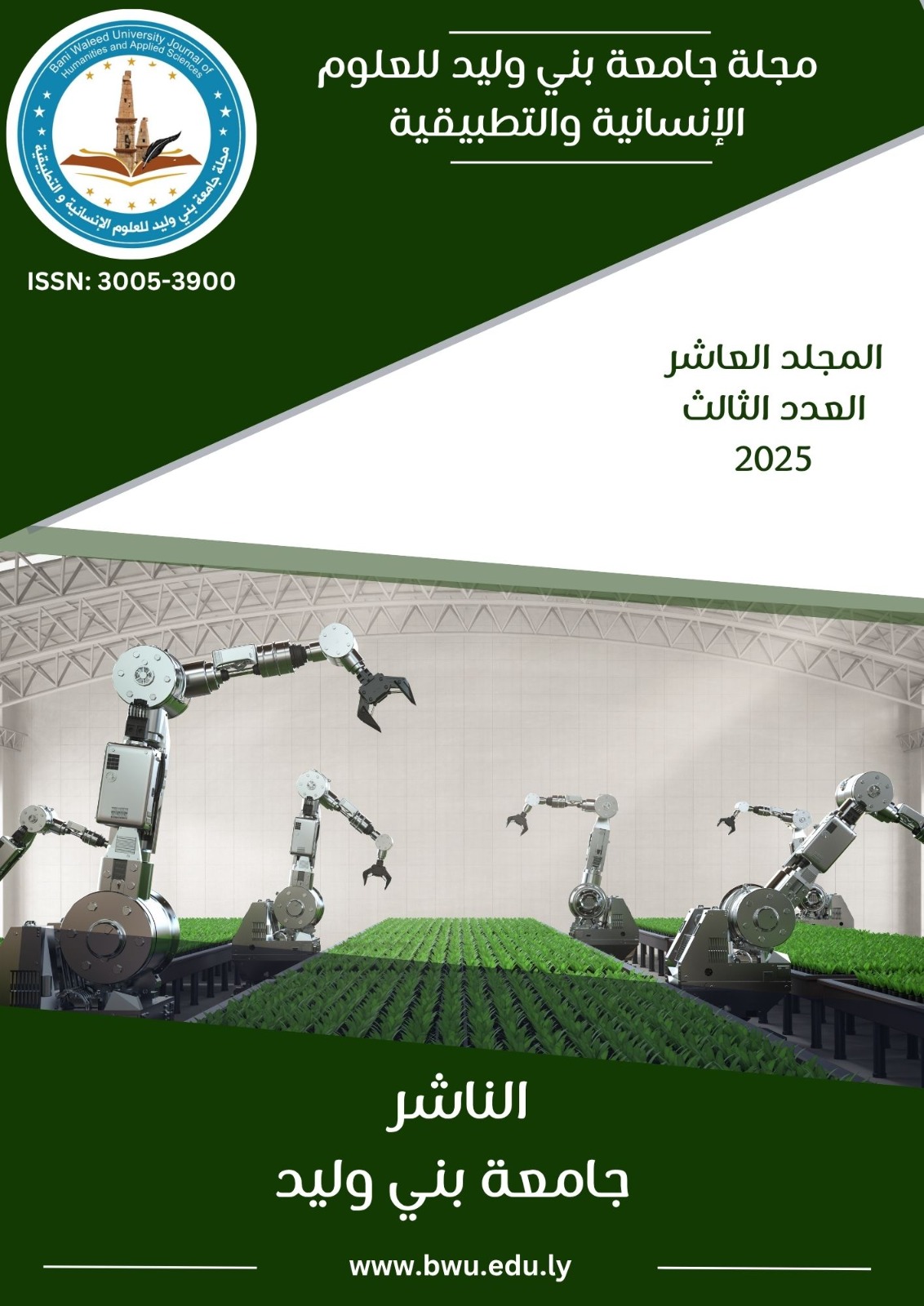The Influence of Writing Constraints on the Accuracy of Written Production among EFL learners
DOI:
https://doi.org/10.58916/jhas.v10i3.856الكلمات المفتاحية:
writing constraints، EFL writing، accuracy، lexical errors، grammatical accuracy, mechanical accuracy.الملخص
This study examines the influence of writing constraints—such as limited time, word count, and task-specific instructions—on the accuracy of written production among sophomore students at the University of Tobruk. Writing constraints are widely used in language classrooms to simulate real-world writing scenarios, but their impact on learners’ ability to produce accurate written language remains underexplored. Despite the importance of this topic, few studies have investigated how such constraints affect the grammatical, lexical, and mechanical accuracy of EFL learners’ writing. This research aims to fill that gap by examining the effects of different constraints on the quality of student writing.
The study involved 40 intermediate-level sophomore students majoring in English. They were divided into a control group (writing without constraints) and an experimental group (writing under time limits, word count, and task-specific instructions). A quantitative approach was employed using error analysis and an independent samples t-test to assess writing accuracy. Data were collected through timed and untimed writing tasks. The findings showed that students writing under unconstrained conditions produced more accurate writing, particularly in terms of lexical and overall accuracy. Grammatical and mechanical accuracy appeared more stable and less affected by constraints.
These results underscore the importance of task design in writing instruction. Constraints such as time pressure and word count can negatively affect writing quality, especially for less proficient learners who may lack the cognitive resources to maintain accuracy. Educators are advised to balance structured writing tasks with opportunities for free expression to support learner development.
التنزيلات
المراجع
Bitchener, J., & Ferris, D. R. (2012). *Written corrective feedback in second language acquisition and writing*. Routledge.
Ellis, R., & Yuan, F. (2004). The effects of planning on fluency, complexity, and accuracy in second language narrative writing. *Studies in Second Language Acquisition*, 26(1), 59–84.
Hapsari, A. S. (2011). The use of roundtable technique to improve students’ achievement in writing hortatory exposition text. Retrieved October 6, 2015 from http://lib.unnes.ac.id/6829/1.haspreviewThumbnailVersion/7894.pdf
Kormos, J. (2012). The role of individual differences in L2 writing. *Journal of Second Language Writing*, 21(4), 390–403.
Manchón, R. M., Roca de Larios, J., & Murphy, L. (2009). The temporal dimension and problem-solving nature of foreign language composing processes. *International Journal of English Studies*, 9(2), 1–28.
Ong, J., & Zhang, L. J. (2010). Effects of task complexity on the fluency and lexical complexity in EFL students' argumentative writing. *Journal of Second Language Writing*, 19(4), 218–233.
Polio, C. (1997). Measures of linguistic accuracy in second language writing research. *Language Learning*, 47(1), 101–143.
Rahimi, M., & Zhang, L. J. (2018). Effects of task complexity and planning time on EFL learners’ performance. *System*, 72, 99–113.
Rahimpour,M., and Hazar,F.(2007). Topic familiarity effect on accuracy, complixty, and fluncy of L2 oral output. The journal of Asia TEFL,4(4),191-211.
Skehan, P. (2009). Modeling second language performance: Integrating complexity, accuracy, fluency, and lexis. *Applied Linguistics*, 30(4), 510–532.
Skehan, P. (1996). A framework for the implementation of task-based instruction. Applied Linguistics, 17(1), 38-62. doi: 10.1093/applin/17.1.38.
Skehan, P., & Foster, P. (1997). Task type and task processing conditions as influences on foreign language performance. Language Teaching Research, 1(3), 185-211. doi: 10.1177/136216889700100302.
Sweller, J.(1988) Cognitive load theory during problem solving; effects on learning. Cognitive science, 12(2),255-285.
Tavakoli, P., & Skehan, P. (2005). Strategic planning, task structure and performance testing. In R. Ellis (Ed.), *Planning and task performance in a second language* (pp. 239–273). John Benjamins.













